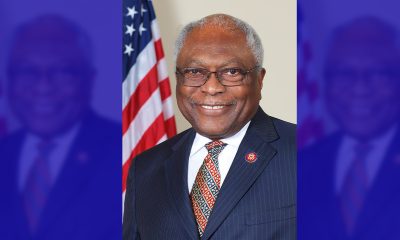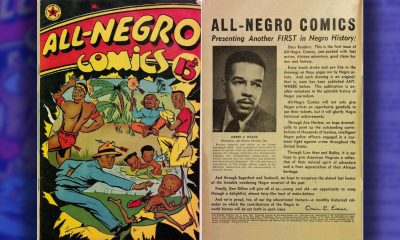National
War Memorial Separates Dead by Race, Divides Southern City

In this photo taken Jan. 22, 2015, shows a plaque honoring World War I soldiers on Greenwood County memorial. The memorial honors its citizens who died in recent wars. The World War I and World War II soldiers are separated into colored and white. Greenwood Mayor Welborn Adams raised $15,000 to put new plaques on the statue, but a state law won’t allow him to put them up. (AP Photo/Jeffrey Collins)
JEFFREY COLLINS, Associated Press
GREENWOOD, S.C. (AP) — Along Main Street in a small South Carolina city, there is war memorial honoring fallen World War I and II soldiers, dividing them into two categories: “white” and “colored.”
Welborn Adams, Greenwood’s white Democratic-leaning mayor, believes the bronze plaques are relics of the South’s scarred past and should be changed in the spirit of equality, replaced like the “colored” water fountains or back entrances to the movie theater that blacks were once forced to use.
Yet the mayor’s attempt to put up new plaques was blocked by a state law that brought the Confederate flag down from the Statehouse dome in 2000. The law forbids altering historical monuments in any way without approval from legislators.
Historians, black and white, have reservations about replacing the plaques, saying they should serve as a reminder of the once-segregated U.S. military.
“Segregation was the accepted social order of that time,” said Eric Williams, who spent 32 years as a historian with the U.S. Park Service. “If we alter the monument, we alter its historical integrity.”
The memorial is owned by the American Legion post in Greenwood and is on city property. On two of its sides, it lists soldiers who died in World War I and World War II that were from Greenwood County. A third side lists Korean and Vietnam War dead from the county without any racial distinction because the military was integrated by that time.
Adams said he asked other South Carolina mayors and doesn’t know of any other similar memorials in the state. Several historians also said they haven’t heard of a monument where fallen soldiers are separated by race.
About a year ago, American Legion post members asked the mayor if he thought he could raise $15,000 privately to change the monument. He was so sure he could, he took out a loan to pay for the new plaques so they could be dedicated on Martin Luther King Jr. Day.
Forty-three donors, almost all white, came through with the money. Adams wrote a $1,000 check himself.
But there was opposition, in part because of a quote from the mayor in a December story in The Index-Journal of Greenwood. “I think if history offends people it needs to be rewritten if possible,” Adams said.
The mayor acknowledged he didn’t choose his words carefully. He later said he meant that while history doesn’t change, the way a community presents itself does.
Days before the King Day ceremony, opponents threatened to try to have Adams arrested — perhaps on a misconduct in office charge — if he went forward with the new plaque. The mayor said he cried in his office when the city’s lawyer told him that opponents were right about the law.
“I wonder if some of the opposition is racism hiding behind history,” said Adams, who was elected mayor in 2008 in this city of 23,000, where about 45 percent of the population is black.
The Confederate flag law says no historical monument, erected by the state or by a local government, may be relocated, removed, disturbed, or altered without a two-thirds vote from state lawmakers. The law lists 10 wars, including the “War Between the States,” — the genteel, Southern name for the Civil War.
The purpose of this part of the law was to appease people who worried 15 years ago that Confederate memorials and street and park names in honor of generals would be torn down in wake of the flag being removed from the Statehouse dome and being put in front of the South Carolina Capitol alongside a Confederate soldier monument. The flag is still a sore point for the NAACP and other black leaders.
A bill has been filed to change the Greenwood memorial and half of the members of the state Senate are listed as sponsors, but some legislators who helped craft the Confederate flag law are leery to bring the divisive issue up again.
“I’ll look at the bill,” said Sen. John Courson, a Republican from Columbia who has been in the Senate since 1985. “But I don’t want to reopen the whole debate. That was last century’s battle.”
Williams, the former Park Service historian, has been one of the most vocal critics. Williams, who is white, wants to see a small display nearby saying the military was segregated back then and that’s why the names are listed the way they are.
Activist Joseph McGill, who spends the night in old slave cabins to get attention to preserve them, agrees. He says talk about switching plaques reminds him of schools that don’t want students reading “Huckleberry Finn” because of racially offensive language from the 1800s is in the book.
“That could just spread the perception that segregation did not exist or wasn’t that bad,” McGill said.
Chad Williams of Brandeis University in Boston has extensively studied black soldiers in World War I. He said he understands the desire to correct a historical injustice, but another sign explaining why the soldiers were separated by race is much more powerful and historically accurate.
“I think it is important to acknowledge the specific context in how African-American soldiers had to serve in the military,” Williams said.
Will Moredock, a freelance journalist trying to get South Carolina to remove the statue of segregationist Gov. Ben Tillman from the Statehouse grounds, said that is shortsighted. Americans are given the power to change laws and even the framework of its government with amendments to the Constitution. So why should historical monuments be any different?
“Every generation has the right to choose the people and the causes it wishes to enshrine in its public places,” Moredock said.
The mayor planned to put the old plaques in the county museum. For now, they remain on the monument and the new ones sit in City Hall storage, waiting for the Legislature to act.
“I am fully aware this is much tougher than I ever expected,” Adams said. “But it’s the right thing to do.”
___
Follow Jeffrey Collins on Twitter at http://twitter.com/JSCollinsAP.
Copyright 2015 The Associated Press. All rights reserved. This material may not be published, broadcast, rewritten or redistributed.
Activism
Oakland Post: Week of April 17 – 23, 2024
The printed Weekly Edition of the Oakland Post: Week of April 17 – 23, 2024

To enlarge your view of this issue, use the slider, magnifying glass icon or full page icon in the lower right corner of the browser window. ![]()
Barbara Lee
Congresswoman Barbara Lee Issues Statement on Deaths of Humanitarian Aid Volunteers in Gaza
On April 2, a day after an Israeli airstrike erroneously killed seven employees of World Central Kitchen (WCK), a humanitarian organization delivering aid in the Gaza Strip, a statement was release by Rep. Barbara Lee (D-CA-12). “This is a devastating and avoidable tragedy. My prayers go to the families and loved ones of the selfless members of the World Central Kitchen team whose lives were lost,” said Lee.

By California Black Media
On April 2, a day after an Israeli airstrike erroneously killed seven employees of World Central Kitchen (WCK), a humanitarian organization delivering aid in the Gaza Strip, a statement was release by Rep. Barbara Lee (D-CA-12).
“This is a devastating and avoidable tragedy. My prayers go to the families and loved ones of the selfless members of the World Central Kitchen team whose lives were lost,” said Lee.
The same day, it was confirmed by the organization that the humanitarian aid volunteers were killed in a strike carried out by Israel Defense Forces (IDF). Prior to the incident, members of the team had been travelling in two armored vehicles marked with the WCF logo and they had been coordinating their movements with the IDF. The group had successfully delivered 10 tons of humanitarian food in a deconflicted zone when its convoy was struck.
“This is not only an attack against WCK. This is an attack on humanitarian organizations showing up in the direst situations where food is being used as a weapon of war. This is unforgivable,” said Erin Gore, chief executive officer of World Central Kitchen.
The seven victims included a U.S. citizen as well as others from Australia, Poland, the United Kingdom, Canada, and Palestine.
Lee has been a vocal advocate for a ceasefire in Gaza and has supported actions by President Joe Biden to airdrop humanitarian aid in the area.
“Far too many civilians have lost their lives as a result of Benjamin Netanyahu’s reprehensible military offensive. The U.S. must join with our allies and demand an immediate, permanent ceasefire – it’s long overdue,” Lee said.
Commentary
Commentary: Republican Votes Are Threatening American Democracy
In many ways, it was great that the Iowa Caucuses were on the same day as Martin Luther King Jr. Day. We needed to know the blunt truth. The takeaway message after the Iowa Caucuses where Donald Trump finished more than 30 points in front of Florida Gov. De Santis and former South Carolina Governor Nikki Haley boils down to this: Our democracy is threatened, for real.

By Emil Guillermo
In many ways, it was great that the Iowa Caucuses were on the same day as Martin Luther King Jr. Day.
We needed to know the blunt truth.
The takeaway message after the Iowa Caucuses where Donald Trump finished more than 30 points in front of Florida Gov. De Santis and former South Carolina Governor Nikki Haley boils down to this: Our democracy is threatened, for real.
And to save it will require all hands on deck.
It was strange for Iowans to caucus on MLK day. It had a self-cancelling effect. The day that honored America’s civil rights and anti-discrimination hero was negated by evening.
That’s when one of the least diverse states in the nation let the world know that white Americans absolutely love Donald Trump. No ifs, ands or buts.
No man is above the law? To the majority of his supporters, it seems Trump is.
It’s an anti-democracy loyalty that has spread like a political virus.
No matter what he does, Trump’s their guy. Trump received 51% of caucus-goers votes to beat Florida Gov. Ron DeSantis, who garnered 21.2%, and former South Carolina Gov. Nikki Haley, who got 19.1%.
The Asian flash in the pan Vivek Ramaswamy finished way behind and dropped out. Perhaps to get in the VP line. Don’t count on it.
According to CNN’s entrance polls, when caucus-goers were asked if they were a part of the “MAGA movement,” nearly half — 46% — said yes. More revealing: “Do you think Biden legitimately won in 2020?”
Only 29% said “yes.”
That means an overwhelming 66% said “no,” thus showing the deep roots in Iowa of the “Big Lie,” the belief in a falsehood that Trump was a victim of election theft.
Even more revealing and posing a direct threat to our democracy was the question of whether Trump was fit for the presidency, even if convicted of a crime.
Sixty-five percent said “yes.”
Who says that about anyone of color indicted on 91 criminal felony counts?
Would a BIPOC executive found liable for business fraud in civil court be given a pass?
How about a BIPOC person found liable for sexual assault?
Iowans have debased the phrase, “no man is above the law.” It’s a mindset that would vote in an American dictatorship.
Compare Iowa with voters in Asia last weekend. Taiwan rejected threats from authoritarian Beijing and elected pro-democracy Taiwanese vice president Lai Ching-te as its new president.
Meanwhile, in our country, which supposedly knows a thing or two about democracy, the Iowa caucuses show how Americans feel about authoritarianism.
Some Americans actually like it even more than the Constitution allows.
About the Author
Emil Guillermo is a journalist and commentator. He does a mini-talk show on YouTube.com/@emilamok1.
-

 Activism4 weeks ago
Activism4 weeks agoOakland Post: Week of March 20 – 26, 2024
-

 #NNPA BlackPress3 weeks ago
#NNPA BlackPress3 weeks agoCOMMENTARY: D.C. Crime Bill Fails to Address Root Causes of Violence and Incarceration
-

 #NNPA BlackPress3 weeks ago
#NNPA BlackPress3 weeks agoMayor, City Council President React to May 31 Closing of Birmingham-Southern College
-

 #NNPA BlackPress3 weeks ago
#NNPA BlackPress3 weeks agoCOMMENTARY: Lady Day and The Lights!
-

 #NNPA BlackPress3 weeks ago
#NNPA BlackPress3 weeks agoFrom Raids to Revelations: The Dark Turn in Sean ‘Diddy’ Combs’ Saga
-

 #NNPA BlackPress3 weeks ago
#NNPA BlackPress3 weeks agoBaltimore Key Bridge Catastrophe: A City’s Heartbreak and a Nation’s Alarm
-

 #NNPA BlackPress3 weeks ago
#NNPA BlackPress3 weeks agoBaltimore’s Key Bridge Struck by Ship, Collapses into Water
-

 Activism3 weeks ago
Activism3 weeks agoOakland Post: Week of March 27 – April 2, 2024



















































